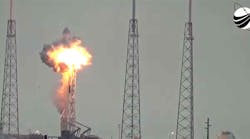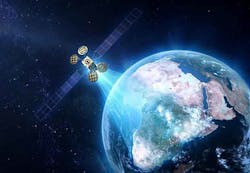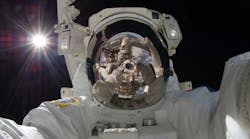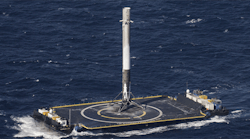A SpaceX rocket exploded in Florida, marking the second loss of a spacecraft by Elon Musk’s venture in a little more than a year and hobbling an effort by Facebook Inc. to spread internet access in Africa.
The incident occurred Thursday at Cape Canaveral Air Force Station Space Launch Complex 40 as SpaceX prepared for Saturday’s launch of Amos-6, an Israeli communications satellite. The explosion happened as the rocket was being fueled before a test of its engines. Both the Falcon 9 rocket and the satellite were destroyed.
“Loss of Falcon vehicle today during propellant fill operation,” Musk said in a tweet. “Originated around upper stage oxygen tank. Cause still unknown. More soon.”
Facebook Chief Executive Officer Mark Zuckerberg quickly posted on his social network:
Image: Facebook
SpaceX Launches
Saturday’s launch was to be the ninth of the year for Space Exploration Technologies Corp., which had settled into a steady tempo of flights following a June 2015 accident that grounded its rockets for six months. That failure was linked to a two-foot-long, inch-thick strut that snapped in a liquid oxygen tank.
SpaceX blamed the latest explosion on an “anomaly on the pad resulting in the loss of the vehicle and its payload” in an e-mailed statement. “Per standard procedure, the pad was clear and there were no injuries.”
Musk’s Hawthorne, California-based company has shaken up the space industry by introducing cost competition and successfully landing rocket boosters to be reused. It has won contracts with NASA to ferry cargo and crew to the International Space Station and agreements with commercial satellite companies to send satellites into orbit.
Authors:













